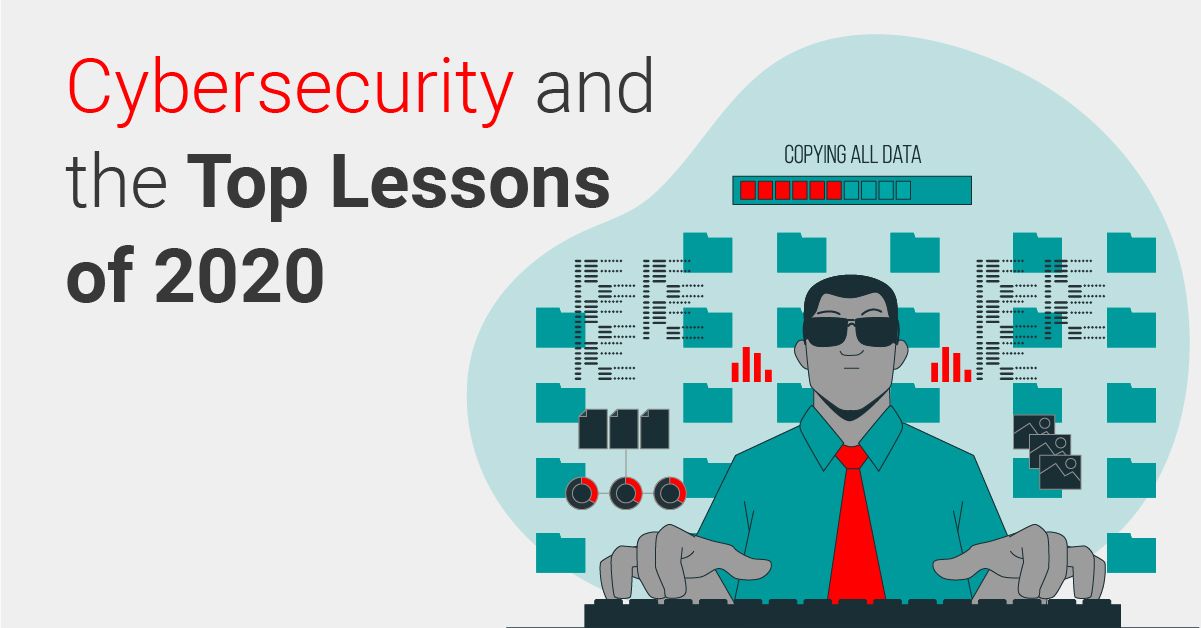
Cybersecurity and the Top Lessons of 2020
2020 was like living in a computer game—threats were coming from every direction, and we were constantly trying to prepare for what was coming next. For this reason, cybersecurity played a massive role in 2020, and will continue to do so in 2021 in a rapidly evolving world. Now that we are halfway through 2021, let’s look back to some of the best articles of 2020 to see what cybersecurity lessons we learned.
Cybersecurity: Hacking victims are uncovering cyberattacks faster - and GDPR is the reason why.
We’ll probably never truly be able to escape from hackers, but the good news is that GDPR is helping us discover these threats faster than ever. Across Europe, the amount of time hackers are able to spend inside the networks of compromised organisations has dropped significantly, and GDPR is the reason why.
Data Breaches Are Being Reported Faster Than Ever
Analysis from the cybersecurity company FireEye reveals that the time from the start of the intrusion to it being identified has dropped from 177 to 54 days since last year. That’s a 70% decrease. As GDPR protocol requires organisations to report any data breaches to the relevant data protection authority within 72 hours, companies are now feeling pressure to do the right thing or pay the consequence.
It’s no surprise organizations are now investing more heavily in cybersecurity than ever before. While GDPR only applies to the EU, this positive trend has been felt globally— on a world scale, the length of cyber-attacks is down from 78 to 56 days.
The Importance of MFA
This being said, the investigation also revealed that some organizations had hackers remain unidentified on their networks for over 2 years. Why? Mainly due to a lack of multi-factor authentication (MFA), which means that cyber-criminals who breach the system easily gain access to networks.
For this reason, the introduction of multi-factor authentication to organizations is vital, as it adds an extra barrier to prevent attackers doing any damage, as well as quickly notifies the security team of an infiltration. Next to this, it’s important to keep security up to date so cyber-attackers don’t exploit this opportunity. It’s much easier to keep hackers out in the first place than get them out once they arrive.
Read the full article here.
How to Stop Your Smart Home Spying on You.
Not to alarm you, but just about “everything in your smart home, from the lightbulbs to the thermostat, could be recording you or collecting data about you.” The home is no longer a safe place. Hackers can infiltrate your home by installing spyware through a lightbulb security flaw.
What’s worse? Smart TVs, smart cameras and baby monitors can also be taken over, which means you have no idea who’s watching over you and baby Sally. We need to start taking home privacy issues more seriously.
How to Defend Yourself Against Spyware Attacks
What can you do to defend yourself from this growing threat? First off, if you own a Smart TV, disable the integrated automated content recognition (ACR) technology, as it tracks everything you watch. “To disable it – although this varies from TV to TV – head for the general or advanced settings and look for a “viewing information” or “viewing data” option.”
What’s next? To prevent Amazon Alexa or Google Assistant from storing your data you can edit your settings, and furthermore ask them to delete your previous entries. In regards to video surveillance, as it’s meant to record what’s in front of it, and is often connected to an internet source, it’s unclear who could really be watching your home.
Worried someone could be watching you? Check which devices are logged into your account and delete what you don’t recognize. The world is evidently a scary place, but your home doesn’t have to be.
Read the full article here.
The New Data Mandate.
Protecting data against breaches is no longer a “nice to have”, but essential for every business. These days, businesses are collecting significant amounts of high-value personal information, including everything from medical data to credit card and social security numbers. The problem? Many don’t know what to do with it.
Now more than ever, it’s vital this data is safeguarded. In certain industries like health care and financial services, data protection has been a priority for the last years, but many other industries, including the sports sector, are only now realizing its importance. Let’s just hope it’s not too late.
How Can Organizations Protect Their Data?
So how do organizations best protect themselves as well as their customers and employees? “A comprehensive data protection strategy ensures that a business remains compliant when it comes to keeping customer and employee data safe, and can safeguard proprietary information and trade secrets.”
With some companies accumulating information over decades, the exponential growth of data is a real concern. So much so, that 53% of executives mentioned this rapidly growing volume of data to be the main challenge in regards to governance efforts. Whatever the sector, it’s important that organizations are establishing clear processes to categorize, manage and safeguard their data.
Not All Data is Created Equal
The good news is that not all data is sensitive—once an organization is able to determine which data is sensitive and which is just run-of-the mill information, they will be able to better manage the influx of data, as well as the safety of their staff and customers. With solid data managing policies, organizations can now rest easy.
Read the full article here.
Take a look at more top articles, trends and experts by signing up to our newsletter—By getting to choose which topics interest you the most, you get the latest news delivered with ease: https://essentials.news/cybersecurity/my-essentials